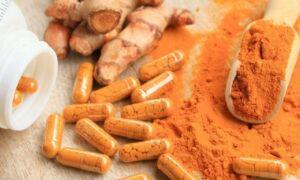Learn about natural kidney protection.
Curcumin, a compound derived from turmeric, is known for its anti-inflammatory and antioxidant properties. It is commonly used to prevent various chronic diseases. Research has shown its protective effects on the kidneys.
However, questions remain about its benefits for patients with advanced chronic kidney disease, and certain groups should avoid consuming curcumin.
Kidney Protective Effects of Curcumin
Curcumin is widely used in various dietary supplements and health products. The following outlines the effects of curcumin on kidney disease:Anti-Inflammatory
Chronic kidney disease often involves various forms of chronic nephritis, a nonspecific kidney injury, including those caused by autoimmune diseases.A 2023 study found that curcumin can inhibit several key inflammatory factors, such as interleukin-6, and tumor necrosis factor-alpha. The researchers also observed that curcumin supplementation significantly reduced levels of C-reactive protein, a common marker of inflammation in the body.
Antioxidant
Oxidative reactions occur during the body’s metabolism, leading to the production of free radicals. While these free radicals play a beneficial role in defending against bacterial and viral infections, an excess can have detrimental effects on the body.
Story continues below advertisement
Stress, unhealthy lifestyle habits, and infections caused by viruses or bacteria can result in an excess of free radicals. These free radicals are unstable because they lack an electron, prompting them to attack other cells in an attempt to steal electrons. This process damages cellular tissues and leads to oxidative stress. Consequently, cells and tissues may lose their normal function, which can accelerate cellular aging and contribute to various health problems in the body.
Research has found that curcumin contains powerful antioxidants and can effectively inhibit free radicals, thereby protecting the kidneys from damage caused by excess free radicals.
Anti-Fibrotic
Kidney fibrosis is a serious complication of chronic kidney disease that can lead to irreversible declines in kidney function. Curcumin can
down-regulate the signaling pathways of growth factor-beta, thereby slowing or potentially improving kidney fibrosis.
Additionally,
research has found that curcumin can lower inflammatory markers such as serum creatinine and urea nitrogen levels, which may improve glomerular filtration rate—a test to check how well the kidneys are working—and attenuate kidney dysfunction.
It is important to note that some studies are still in early stages, with some conducted on animals. Further human trials are necessary for more conclusive results. Nevertheless, curcumin remains a potentially beneficial supplement for those with mild to moderate kidney disease.
Story continues below advertisement
Considerations for Advanced Kidney Disease
For patients with advanced stage 4 kidney disease, the suitability of curcumin requires consideration of two factors:
First, whether curcumin is potent enough to deliver quick results, as this supplement typically works gradually and requires long-term use to produce significant effects.
Second, patients with advanced kidney disease often experience severe symptoms, and curcumin alone may not be sufficient. It may need to be combined with other treatments for optimal results. Therefore, it is advised to consult a physician and make decisions based on individual circumstances.
Who Should Avoid Curcumin?
While curcumin can be beneficial for kidney health and chronic disease prevention, certain groups of people should exercise caution or avoid it entirely:
Pregnant women
Curcumin may induce uterine contractions, increasing the risk of miscarriage, particularly in those already at risk.
Breastfeeding women
The effects of curcumin on infants remain unclear, so it is advisable to avoid using it during breastfeeding.
Patients with bleeding disorders or those taking anticoagulants
Curcumin has mild anticoagulant properties, potentially enhancing the risk of excessive bleeding or prolonging clotting time.
Those preparing for surgery
As surgery carries a risk of bleeding, curcumin should be avoided before surgical procedures due to its anticoagulant effects.
Patients with bile duct obstruction or gallstones
Curcumin may stimulate bile secretion, potentially exacerbating symptoms such as pain.
Diabetic patients
Curcumin has been shown to
lower blood sugar levels. Therefore, it is essential for diabetics to adjust the dosage of their medications when supplementing with curcumin to prevent the risk of hypoglycemia.
People with gastrointestinal disorders
Curcumin generally has minimal effects on the gastrointestinal tract; however, high doses may lead to gastrointestinal irritation. Therefore, patients with gastritis or peptic ulcers should carefully monitor their dosage of curcumin. It is recommended to take curcumin with food or after meals to prevent nausea and bloating.
People allergic to curcumin
For those who cannot take curcumin, alternative methods for combating inflammation and providing antioxidant support exist, such as
molecular hydrogen therapy. This therapy offers powerful antioxidant, anti-inflammatory effects, without causing side effects on the gastrointestinal tract or other parts of the body.
Views expressed in this article are the opinions of the author and do not necessarily reflect the views of The Epoch Times. Epoch Health welcomes professional discussion and friendly debate. To submit an opinion piece, please follow these guidelines and submit through our form here. 

